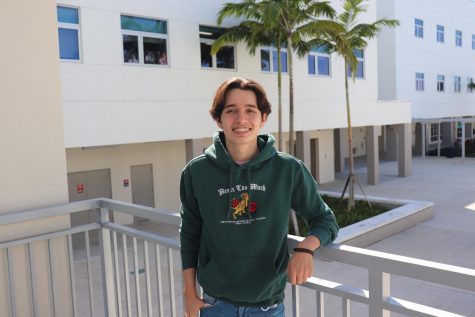Movimiento San Isidro: From La Havana to Versailles
December 17, 2020
On Nov. 27, 2020 in. Havana, Cuba a. A group of artists turned dissidents protested outside the Ministry of Culture as an organization called the Movimiento San Isidro.
The group protested against the large-scale violation of human rights and freedom of expression through censorship under the Cuban government. A recent catalyst for these new waves of protests involved the incarceration of rapper Dan Solis for a total of eight8 months after the police entered the rapper’s home without consent.
Solis, a member of the Movimiento San Isidro, had been partaking in a 10-day hunger strike against the restrictions on freedom of speech in Cuba organized by the movement at the time of his arrest.
The Movimiento San Isidro or San Isidro movement has gained worldwide support, acquiring recognition from mainstream organizations like Amnesty International. The movement defines themselves as empowering society towards a future with democratic values, and uniting to promote freedom and culture.
Many of the movement’s supportersAmong the movement’s worldwide supporters, much of them reside in the Miami community — where much of the major Cuban diaspora took place following the Cuban Revolution in 1959. The profound impact of the Cuban diaspora still reflects in Miami today with staple communities such as Little Havana.
On Nov. 28 in Little Havana, protests took place in solidarity with the Cuban Movimiento San Isidro at the Versailles restaurant. Protesters at Versailles showed support for the dissidents leading the movement facing increasing pressure from the Cuban government. The government had intervened in the movement’s Old Havana headquarters on Nov. 26.
Aside from those who partook in the solidarity protest at Versailles, the Movimiento San Isidro has much meaning for many Cuban-Americans residing in Miami.
For Kailey Nuñez, a Cuban-American and senior at Miami Palmetto Senior High, these protests hit home.
“I fully support the peaceful protests against the dictatorship in Cuba which censors people’s opinion,” Nunez said. “I think the artists are brave for protesting against Cuba’s cruel government.”
Nuñez urges the importance of staying aware of the current political climate in Cuba.
“It’s important for people to understand the struggles that people in Cuba deal with the inability to have freedom of speech, it’s unfair to try to silence people’s opinions,” Nuñez said. “Hopefully more people become aware and educated about the conditions in Cuba to help them.”









